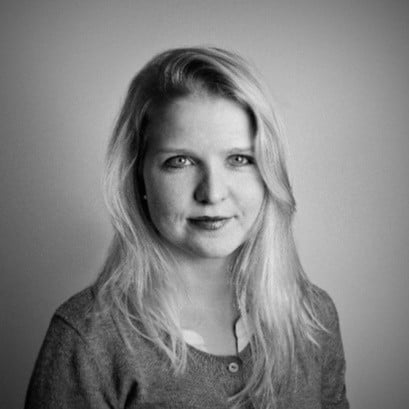Parliament to voted last week to make changes to Denmark’s immigrations rules designed to make it easier to for companies to hire internationally.
The bill, which was submitted to parliament in February by immigration minister Kaare Dybvad Bek, permanently reduces the minimum wage required under the Pay Limit Scheme (Beløbsordning), making it easier for companies to recruit skilled workers from non-EU countries.
It also opens up the country’s fast-track work permit certification scheme to companies with as few as ten employees, extends the job search period for foreign graduates of Danish universities to three years, adds more job titles to the Positive List for People with Higher Education, and extends the Start-up Denmark scheme for entrepreneurs.
The new rules come into effect on April 1st, after which work permits can be applied for under the new rules.
Pay Limit Scheme
The Pay Limit Scheme is an arrangement by which work permits are granted to non-EU nationals. Under the scheme, work permits can be granted to applicants who have been offered a wage above a set amount by a Danish employer.
Under the old rules that minimum wage was 448,000 kroner per year. The law change permanently reduces it to 375,000 kroner per year.
Foreign workers can now be given a work permit under the scheme on the lower wage, but it should be noted that that jobs given to non-EU citizens hired internationally are still subject to rules ensuring equivalent pay for the roles.
This means that if the role being hired for was normally paid 425,000 kroner, for example, employers will still have to pay this level, and not the 375,000 kroner minimum.
Fast-track work permit
The Fast-track Scheme allows certified companies to employ foreign nationals with special qualifications more quickly and easily than through the standard pathway.
If an employer and employee agree they want the new job to be started quickly, the employer can be given power of attorney to submit an application under the Fast-track Scheme on behalf the employee. It is a prerequisite that the employer is certified to use the Fast-track Scheme.
In short, this means that employers, by registering the scheme, can enable their foreign hires to be granted a temporary work permit so they can start their job immediately after arriving in Denmark, or – if the employee is not exempted from Danish visa rules – get them a permit including an entry visa within 10 days.
The new rules allow companies with as few as 10 employees to register for the scheme, a reduction from the minimum of 20 under the old rules.
Job search period for foreign graduates of Danish universities
The outgoing rules allow students who have completed and been awarded a Danish Professional Bachelor’s (vocational), Bachelor’s, Master’s degree or PhD degree to can for an establishment card.
This is a residence and work permit that allows the graduated student to stay in Denmark for two years, the period of time the permit is valid, to enable them to apply for jobs and establish themselves on the labour market.
There are certain conditions attached to the establishment card: You must not give up your Danish address or stay abroad for longer than 6 successive months, and the permit does not allow you to work in other Schengen countries.
Under the new rules, all foreign nationals who complete degree programmes with the above classifications will automatically be given a three-year (a longer period than the two years given under the old rules) “job seeking period” in which they have the right to live and work in Denmark.
Positive List for People with Higher Education
The Positive List is a list of professions experiencing a shortage of qualified professionals in Denmark.
Danish Residence and work permits can be granted based on offers of jobs included in the Positive List. Applicants must have an educational background that makes them qualified for the job.
The Positive List is usually updated twice a year, in January and July, but the new rules open up this list to a broader range of applicants.
No information is currently available as to who will be covered by this broader scope, but the now-passed bill which implements the changes mentions that “regional labour market councils” and “specialised a-kasser” [unemployment insurance providers] can conclude there is “a national lack of qualified labour” and that job offers can thereby qualify for the positive list.
Start-up Denmark scheme for entrepreneurs
Start-up Denmark is a scheme for foreign entrepreneurs. Two-year work permits can be granted based on a business idea which must be approved by a panel of experts appointed by the Danish Business Authority. If the business is successful, the permits can be extended for three years at a time.
The scheme can be used by both individuals and teams of up to three people who want to start a business together in Denmark through a joined business plan.
There must be specific Danish business interests that favour of the establishment of the business in Denmark, and normal businesses such as restaurants or retail do not normally qualify under the existing rules.
However, like with the Positive List, the rule changes open the scheme to a broader range of applicants.
While it seems the new rules could benefit a broad target group of potential skilled foreign workers who see opportunities in Denmark, they “may be a game changer for the smaller companies hiring employees within industries with lower salary thresholds where the new hire has only a few years of experience,” Rikke Wolfsen, country manager Global Immigration practice with the Danish section of financial services company EY, told The Local in previous comments about the lower salary thresholds.
Full details of the new rules and their relevant application pages and materials will be published on the website of the Danish Agency for International Recruitment and Integration (SIRI), the agency which processes work permit applications, on April 1st.
We will also report additional detail relating to, for example, the Positive List and job seeking period for graduates.




 Please whitelist us to continue reading.
Please whitelist us to continue reading.
Member comments